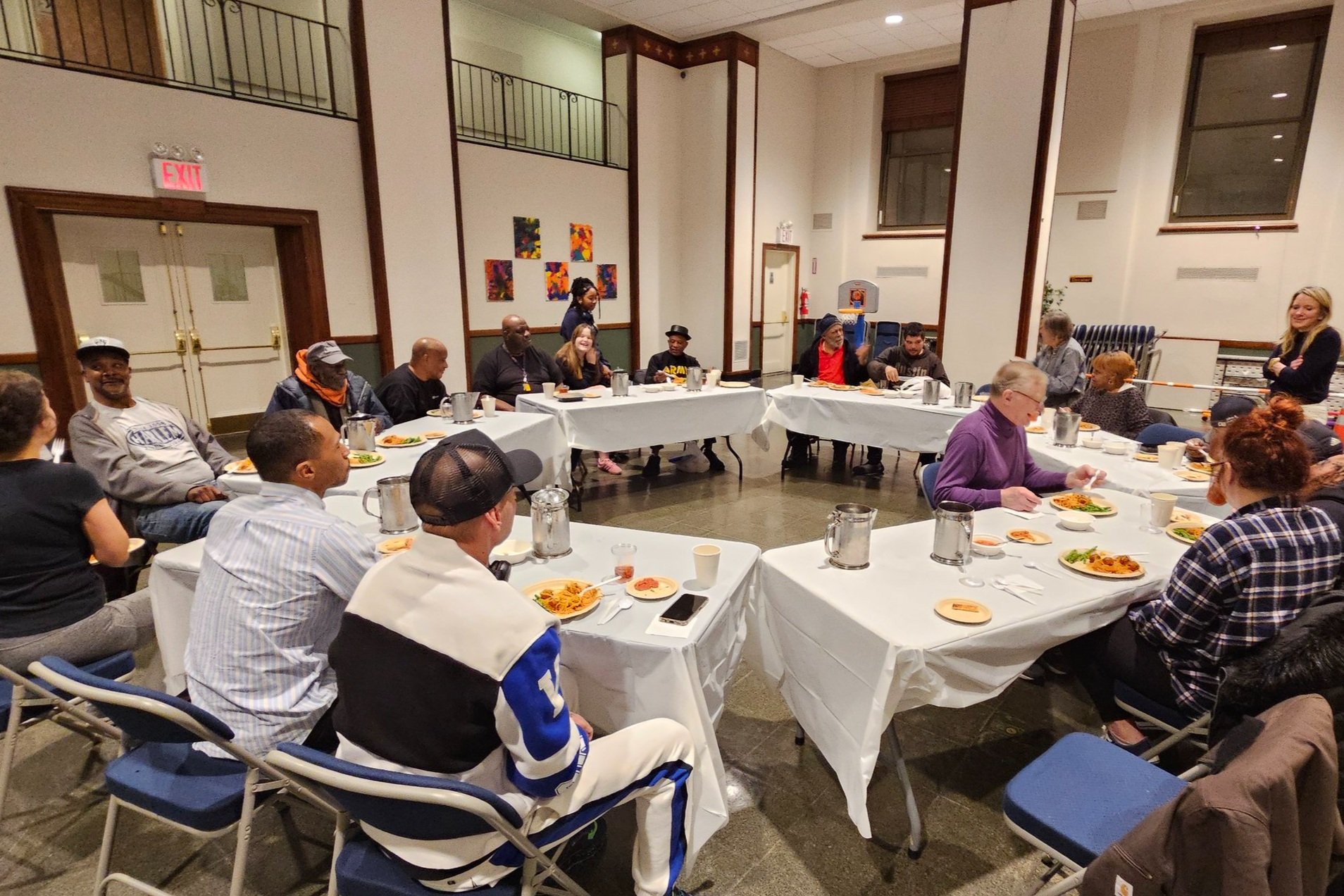Chance to Connect
Thousands of New Yorkers are in need of but disconnected from services. Chance to Connect makes these connections at a resource center, at community meals, and throughout the City.
Chance to Connect is a resource center where people in need can meet with a case manager to access resources and support. We also provide a safe space during the daytime hours for those living on the streets or in shelters.
The case manager meets one-on-one with clients to understand their needs and help them access shelter and housing, public assistance, counseling, mental health and substance use treatment, and a variety of other services.
In the afternoons, volunteers lead activities such as chair yoga, art projects, and meditation for clients not meeting with the case manager. Breakfast and a light lunch are also served daily.
NCS Connect expands our capability by sending a counselor to free meal programs on the Upper East Side of Manhattan to help guests access important services.
NCS started NCS Connect in response to a community need — many free meal programs are staffed by volunteers who lack the resources to respond to requests for information and referrals for other services needed by guests. Our social worker meets privately with guests to understand their needs and help them access the necessary information or services. Types of support most frequently requested include shelter and housing, public assistance, mental health counseling, and substance use treatment.
The NCS Connect hotline complements these in-person services and helps us reach all parts of New York City.
In addition to this personalized support, NCS’s Street Sheets help share information more widely.
These pocket-sized guides include details about accessing resources including:
meal programs
shelters
drop-in centers
health care
Street Sheets are available in English and Spanish for the Upper East Side, Upper West Side, Midtown Manhattan and Downtown Manhattan, increasing the number of people NCS can connect to critical services.
These guides are distributed at meal programs, libraries, hospitals, and other sites, as well as by individuals who carry them on their regular commutes and travel throughout the city—making this a simple and efficient way to get information to people who need help.












